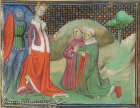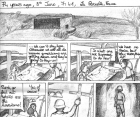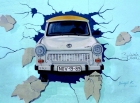Liaising with others
Museums and archives are often willing to help with curriculum planning and educational sessions for students. Online access has increased the potential for students to also liaise with others. Projects could be set up with local primary students, or with A level students studying the same topics, of with students overseas.
-

Communities of inquiry: creating the conditions for meaningful collaboration
ArticleClick to view -

Developing effective collaboration between schools and universities
ArticleClick to view -

Triumphs Show: ‘The Strands of Memory’
ArticleClick to view -

Guidance Pack: Building a Local Teacher Network
InformationClick to view -

The mechanics of history: interpretations and claim construction processes
ArticleClick to view -

Triumphs Show 182: A public lecture series
ArticleClick to view -

Using oral history to enhance a local history partnership
ArticleClick to view -

Triumphs Show 170: making a place for fieldwork in history lessons
ArticleClick to view -

‘If you had told me before that these students were Russians, I would not have believed it’
ArticleClick to view -

Active remembrance
ArticleClick to view -

Bringing together students from Bradford and Peshawar
ArticleClick to view -

Liaising with Others - Quick Links
ArticleClick to view -

Triumphs Show 156: Fresh perspectives on the First World War
ArticleClick to view -

Employment, employability and history
ArticleClick to view

